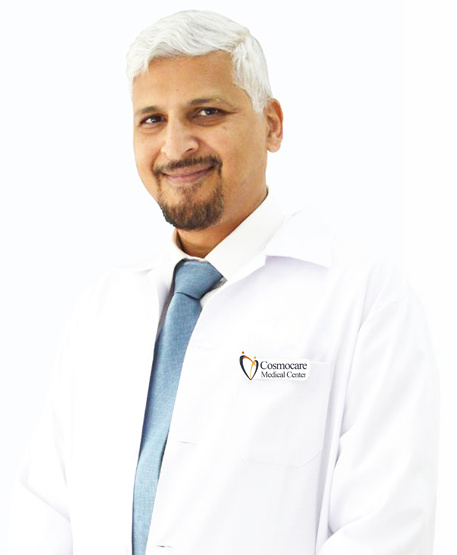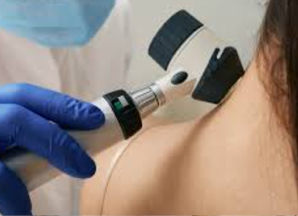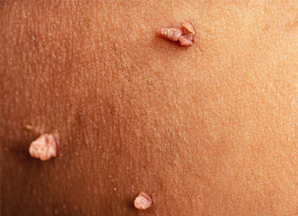What is Hepatitis C?
Hepatitis C Testing Dubai
Key facts
- Hepatitis C is a liver disease caused by the hepatitis C virus: the virus can cause both acute and chronic hepatitis infection, ranging in severity from a mild illness lasting a few weeks to a serious, lifelong illness.
- The hepatitis C virus is a bloodborne virus and the most common modes of infection are through unsafe injection practices; inadequate sterilization of medical equipment; and the transfusion of unscreened blood and blood products.
- 130–150 million people globally have chronic hepatitis C infection.
- A significant number of those who are chronically infected will develop liver cirrhosis or liver cancer.
- Approximately 500 000 people die each year from hepatitis C-related liver diseases1.
- Antiviral medicines can cure approximately 90% of persons with hepatitis C infection, thereby reducing the risk of death from liver cancer and cirrhosis, but access to diagnosis and treatment is low.
- There is currently no vaccine for hepatitis C; however research in this area is ongoing.
Hepatitis C virus (HCV) causes both acute and chronic infection. Acute HCV infection is usually asymptomatic, and is only very rarely associated with life-threatening disease. About 15–45% of infected persons spontaneously clear the virus within 6 months of infection without any treatment.
The remaining 55–85% of persons will develop chronic HCV infection. Of those with chronic HCV infection, the risk of cirrhosis of the liver is 15–30% within 20 years.
Geographical distribution
Hepatitis C is found worldwide. The most affected regions are Africa and Central and East Asia. Depending on the country, hepatitis C infection can be concentrated in certain populations (for example, among people who inject drugs); and/or in general populations. There are multiple strains (or genotypes) of the HCV virus and their distribution varies by region.
Transmission
The hepatitis C virus is a bloodborne virus. It is most commonly transmitted through:
- injecting drug use through the sharing of injection equipment;
- in health care settings due to the reuse or inadequate sterilization of medical equipment, especially syringes and needles;
- the transfusion of unscreened blood and blood products;
- HCV can also be transmitted sexually and can be passed from an infected mother to her baby; however these modes of transmission are much less common.
Hepatitis C is not spread through breast milk, food or water or by casual contact such as hugging, kissing and sharing food or drinks with an infected person.
Symptoms
The incubation period for hepatitis C is 2 weeks to 6 months. Following initial infection, approximately 80% of people do not exhibit any symptoms. Those who are acutely symptomatic may exhibit fever, fatigue, decreased appetite, nausea, vomiting, abdominal pain, dark urine, grey-coloured faeces, joint pain and jaundice (yellowing of skin and the whites of the eyes).
Screening and diagnosis
Due to the fact that acute HCV infection is usually asymptomatic, few people are diagnosed during the acute phase. In those people who go on to develop chronic HCV infection, the infection is also often undiagnosed because the infection remains asymptomatic until decades after infection when symptoms develop secondary to serious liver damage.
HCV infection is diagnosed in 2 steps:
- Screening for anti-HCV antibodies with a serological test identifies people who have been infected with the virus.
- If the test is positive for anti-HCV antibodies, a nucleic acid test for HCV RNA is needed to confirm chronic HCV infection because about 15–45% of people infected with HCV spontaneously clear the infection by a strong immune response without the need for treatment. Although no longer infected, they will still test positive for anti-HCV antibodies.
After a person has been diagnosed with chronic hepatitis C infection, they should have an assessment of the degree of liver damage (fibrosis and cirrhosis). This can be done by liver biopsy or through a variety of non-invasive tests.
In addition, these people should have a laboratory test to identify the genotype of the hepatitis C strain. There are 6 genotypes of the HCV and they respond differently to treatment. Furthermore, it is possible for a person to be infected with more than one genotype. The degree of liver damage and virus genotype are used to guide treatment decisions and management of the disease.
Getting tested
Early diagnosis can prevent health problems that may result from infection and prevent transmission of the virus. WHO recommends screening for people who may be at increased risk of infection.
Populations at increased risk of HCV infection include:
- people who inject drugs
- recipients of infected blood products or invasive procedures in health-care facilities with inadequate infection control practices
- children born to mothers infected with HCV
- people with sexual partners who are HCV-infected
- people with HIV infection
- prisoners or previously incarcerated persons
- people who have used intranasal drugs
- people who have had tattoos or piercings.
Treatment
Hepatitis C does not always require treatment as the immune response in some people will clear the infection, and some people with chronic infection do not develop liver damage. When treatment is necessary, the goal of hepatitis C treatment is cure. The cure rate depends on several factors including the strain of the virus and the type of treatment given.
The standard of care for hepatitis C is changing rapidly. Until recently, hepatitis C treatment was based on therapy with interferon and ribavirin, which required weekly injections for 48 weeks, cured approximately half of treated patients, but caused frequent and sometimes life-threatening adverse reactions.
Recently, new antiviral drugs have been developed. These medicines, called direct antiviral agents (DAA) are much more effective, safer and better-tolerated than the older therapies. Therapy with DAAs result can cure most persons with HCV infection and treatment is shorter (usually 12 weeks) and safer. Although the production cost of DAAs is low, the initial prices are very high and likely to make access to these drugs difficult even in high-income countries.
Much needs to be done to ensure that these advances lead to greater access to treatment globally.
Prevention
Primary prevention
There is no vaccine for hepatitis C, therefore prevention of HCV infection depends upon reducing the risk of exposure to the virus in health-care settings, in higher risk populations, for example, people who inject drugs, and through sexual contact.
The following list provides a limited example of primary prevention interventions recommended by WHO:
- hand hygiene: including surgical hand preparation, hand washing and use of gloves;
- safe handling and disposal of sharps and waste;
- provision of comprehensive harm-reduction services to people who inject drugs including sterile injecting equipment;
- testing of donated blood for hepatitis B and C (as well as HIV and syphilis);
- training of health personnel;
- promotion of correct and consistent use of condoms.
Secondary and tertiary prevention
For people infected with the hepatitis C virus, WHO recommends:
- education and counselling on options for care and treatment;
- immunization with the hepatitis A and B vaccines to prevent coinfection from these hepatitis viruses to protect their liver;
- early and appropriate medical management including antiviral therapy if appropriate; and
- regular monitoring for early diagnosis of chronic liver disease.
Screening, care and treatment of persons with hepatitis C infection
In April 2014, WHO launched "Guidelines for the screening, care and treatment of persons with hepatitis C".
These are the first guidelines dealing with hepatitis C treatment produced by WHO and complement existing guidance on the prevention of transmission of bloodborne viruses, including HCV.
They are intended for policy-makers, government officials, and others working in low- and middle-income countries who are developing programmes for the screening, care and treatment of people with HCV infection. These guidelines will help expand of treatment services to patients with HCV infection, as they provide key recommendations in these areas and discuss considerations for implementation.
Summary of key recommendations
Recommendations on screening for HCV infection
1. Screening to identify persons with HCV infection
It is recommended that HCV serology testing be offered to individuals who are part of a population with high HCV prevalence or who have a history of HCV risk exposure/ behaviour.
2. When to confirm the diagnosis of chronic HCV infection
It is suggested that nucleic acid testing (NAT) for the detection of HCV ribonucleic acid (RNA) be performed directly following a positive HCV serological test to establish the diagnosis of chronic HCV infection, in addition to NAT for HCV RNA as part of the assessment for starting treatment for HCV infection.
Recommendations on care of people infected with HCV
3. Screening for alcohol use and counselling to reduce moderate and high levels of alcohol intake
An alcohol intake assessment is recommended for all persons with HCV infection followed by the offer of a behavioural alcohol reduction intervention for persons with moderate-to-high alcohol intake.
4. Assessing degree of liver fibrosis and cirrhosis
In resource-limited settings, it is suggested that the aminotransferase/platelet ratio index (APRI) or FIB4 tests be used for the assessment of hepatic fibrosis rather than other non-invasive tests that require more resources such as elastography or Fibrotest.
Recommendations on treatment of HCV infection
5. Assessing for HCV treatment
All adults and children with chronic HCV infection, including people who inject drugs, should be assessed for antiviral treatment.
6. Treatment with pegylated interferon and ribavirin
Pegylated interferon in combination with ribavirin is recommended for the treatment of chronic HCV infection rather than standard non-pegylated interferon with ribavirin.
7. Treatment with telaprevir or boceprevir
Treatment with the direct-acting antivirals telaprevir or boceprevir, given in combination with pegylated interferon and ribavirin, is suggested for genotype 1 chronic HCV infection rather than pegylated interferon and ribavirin alone.
8. Treatment with sofosbuvir
Sofosbuvir, given in combination with ribavirin with or without pegylated interferon (depending on the HCV genotype), is recommended in genotypes 1, 2, 3 and 4 HCV infection rather than pegylated interferon and ribavirin alone, or no treatment for persons who cannot tolerate interferon.
9. Treatment with simeprevir
Simeprevir, given in combination with pegylated interferon and ribavirin, is recommended for persons with genotype 1b HCV infection and for persons with genotype 1a HCV infection without the Q80K polymorphism rather than pegylated interferon and ribavirin alone.
Note: Recommendations 8 and 9 were made without taking resource use into consideration, as pricing information was not available for any country other than the United States at the time this recommendation was formulated.
WHO response
WHO is working in the following areas to prevent and control viral hepatitis:
- raising awareness, promoting partnerships and mobilizing resources;
- formulating evidence-based policy and data for action;
- preventing transmission; and
- executing screening, care and treatment.
Common STDs include HIV Type 1, Herpes 1 & 2, Hepatitis A, B & C, Syphilis, chlamydia, genital warts and gonorrhoea- and the sooner an STI is treated, the less long term damage will be caused.







